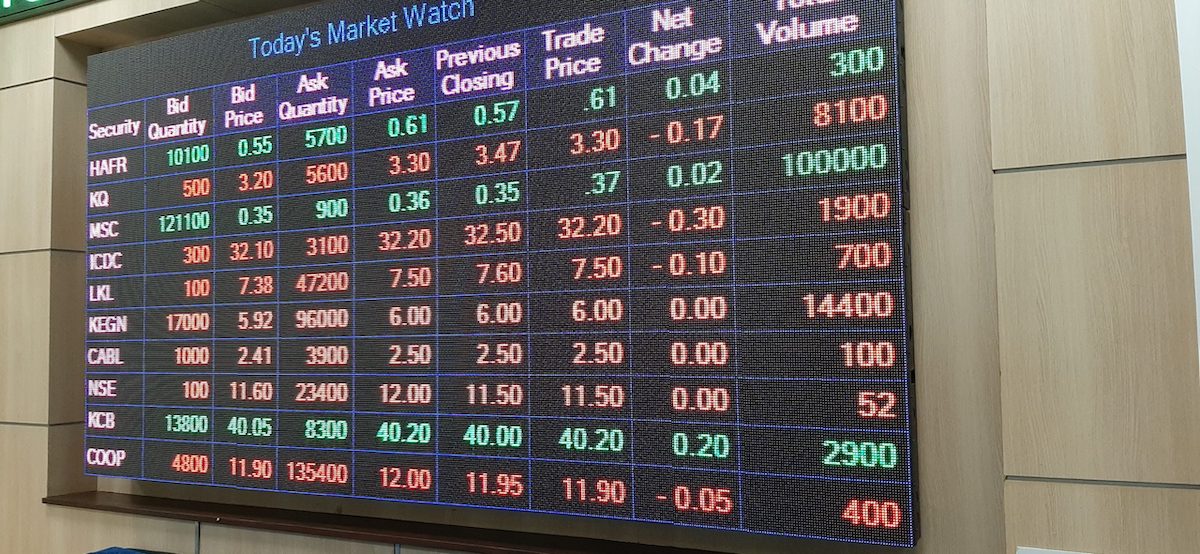In the world of investments, unit trusts have emerged as a popular choice for both seasoned investors and those new to the financial landscape. Offering a unique blend of diversification, professional management, and accessibility, unit trusts have gained prominence as a viable investment vehicle.
Investors have taken to Unit Trusts to not only invest but also save for their goals. So, what are Unit Trusts and what makes them such an attractive investment?
The Concept of Unit Trusts
A unit trust is a collective investment scheme that pools money from various investors to create a diversified portfolio of assets, such as stocks, bonds, and other securities. These funds are managed by professional fund managers who possess expertise in making informed investment decisions.
Each investor holds units, which represent their proportionate share of the overall fund. By investing in unit trusts, individuals gain access to a diverse range of assets that may not have been feasible on an individual basis.
Advantages of Unit Trusts
Unit trust accounts have several advantages but here are the key ones.
- Diversification: This is a risk management strategy in investments that involves spreading investments across various asset classes and sectors. By doing so, investors can reduce the impact of volatility and mitigate potential losses.
Unit trusts inherently provide diversification by pooling investments from numerous individuals and investing in a broad range of assets. This diversified approach helps to minimize the risk associated with any single investment and provides a more stable return potential over the long term. This is not possible for individuals going it alone.
- Professional Management: Expert fund managers possess in-depth knowledge, experience, and access to comprehensive research and analysis. They have the expertise to identify investment opportunities and manage the portfolio efficiently. By entrusting your investments to professional fund managers, you can benefit from their skills and save valuable time and effort that would have otherwise been required for individual research and decision-making.
- Accessibility: Unlike other investment options that may require a substantial initial capital outlay, unit trusts often have lower minimum investment requirements. Funds like the Zimele Savings Plan allow as little as Ksh100. This accessibility allows individuals with limited funds to participate in the financial markets and gain exposure to a diversified investment portfolio. Additionally, the ability to buy and sell units on a daily basis provides liquidity, allowing investors to enter or exit their investments without significant restrictions.
- Transparency and Regulation: Unit trust funds in Kenya are subject to regulatory oversight from the Capital Markets Authority (CMA). Under the regulation, they are required to keep their assets with a custodian and have a trustee. They are also required to provide regular reports and updates to investors.
- This transparency ensures that investors have access to accurate and up-to-date information about the fund’s performance, holdings, and fees. By having this information readily available, investors can make informed decisions and have a clear understanding of the investment process.
See Also >> Fuliza Ya Biashara: Everything You Need To Know
Types of Funds
In Kenya, we have 4 types of Unit Trust accounts; Fixed Income Fund, Money Market Fund, Balanced Funds, and Equity Funds.
-
Money Market Funds
Money market funds invest in short-term, low-risk securities such as treasury bills, treasury bills, and commercial paper. CMA regulations state that short term securities are assets with up to 13 months of maturity. These funds aim to provide stability and liquidity to investors.
Pros
- Stability: Money market funds focus on low-risk investments, making them relatively stable compared to other investment options.
- Liquidity: Investors can typically access their funds quickly and easily, as money market funds offer high liquidity.
- Preserved capital: Money market funds aim to maintain the value of the investor’s capital, providing a safe haven for conservative investors.
Cons
- Low returns: Due to their short-term nature, money market funds generally offer lower returns compared to other investment options.
- Inflation risk: Returns from money market funds may not keep pace with inflation, potentially resulting in a decrease in purchasing power over time.
- Interest Volatility: Since the investments made are short-term, the interest tends to fluctuate very often when compared to Fixed Income Funds.
- Credit risk: There is a risk that the issuer of the bond may default on its payments. Lower-rated bonds carry a higher risk of default.
Risk profile: Money market funds have a low-risk profile, with a primary focus on capital preservation and liquidity.

Outlook: Money Market Funds have been the most popular Unit Trust accounts over the last decade. New regulations will however reduce their popularity in the future in favour of Fixed Income Funds.
-
Fixed Income Fund
Fixed income funds invest in bonds, government securities, corporate bonds, and other fixed-income instruments. These funds can invest in both short-term and long-term assets. These aim to generate regular interest income for investors.
The Zimele Savings Plan is an example of a Fixed Income Fund. You can use this fund to save for all your short-term as well as long-term goals.
Pros
- Steady income: Fixed income funds provide a steady stream of income through coupon payments and interest earned from bond investments.
- Diversification: By investing in a variety of fixed-income securities, these funds offer diversification, reducing the impact of any single bond’s performance.
- Lower volatility: Fixed income funds generally exhibit lower volatility compared to other funds, making them suitable for risk-averse investors.
- Higher Returns: Due to the nature of their portfolios, fixed income funds will provide a higher return in the long-run compared to the Money Market Funds.
Cons
- Interest rate risk: Fixed income funds are sensitive to changes in interest rates. When rates rise, bond prices typically fall, potentially resulting in capital losses for investors.
- Credit risk: There is a risk that the issuer of the bond may default on its payments. Lower-rated bonds carry a higher risk of default.
Risk profile: Fixed income funds have a low risk profile, with a focus on generating income while preserving capital.
Outlook: Fund managers in Kenya could previously buy bonds in their Money market Fund to increase the investor’s returns. Recent regulatory changes have however tightened the rules on where these funds can invest their funds. Bonds are now almost exclusively limited to Fixed Income Funds. This will make Fixed Income Funds popular going forward.
Read >> How To Turn Ksh100,000 Salary Into a Financial Fortune
-
Balanced Fund
Balanced funds invest in a mix of equities/shares and interest-earning securities. They aim to provide a balanced approach to investing by combining the potential for capital appreciation with income generation.
The Zimele Balanced Fund is an example of these funds.
Pros
- Diversification: Balanced funds offer a diversified portfolio, as they invest in both stocks and bonds, reducing the impact of volatility.
- Capital appreciation: By including equity investments, balanced funds provide the potential for capital appreciation over the long term.
- Income generation: Fixed-income securities in the portfolio contribute to regular income for investors.
Cons
- Market risk: Balanced funds are still subject to market fluctuations and may experience volatility, especially during periods of market downturns. These downturns result in loses.
- Allocation risk: The performance of balanced funds heavily relies on the asset allocation decisions made by the fund manager, which may not always result in optimal returns in the short-run.
Risk profile: Balanced funds have a moderate risk profile, with a balanced approach to capital appreciation and income generation.
Outlook: Balanced Funds were very popular in the early 2000s. Their uptake has however lowered in recent years due to the stock market performance and better performance in the Money Market funds. Investors in the Balanced Fund should have a long-term outlook and understand that loses in the Balanced Fund are inevitable especially in the short-term.
-
Equity Fund
Equity funds invest predominantly in stocks and equities of companies listed in the Nairobi Securities Exchange (NSE). They aim to provide long-term capital growth by participating in the growth potential of the stock market.
Pros
- Capital appreciation: Equity funds offer the potential for substantial capital appreciation over the long term, as they are exposed to the growth of companies’ stock prices.
- Portfolio diversification: Equity funds invest in a diversified portfolio of stocks, reducing the risk associated with investing in individual companies.
- Professional management: These funds are managed by experienced fund managers who analyze stocks and make informed investment decisions on behalf of investors.

Cons
- Market volatility: Equity funds are subject to market fluctuations and can experience significant volatility, especially during periods of market downturns.
- Risk of loss: Investing in stocks carries the risk of capital loss, as stock prices can decline due to various factors.
- Higher investment risk: Equity funds are generally considered riskier than other fund types due to their exposure to the stock market.
Risk profile: Equity funds have a high-risk profile, with a primary focus on long-term capital growth.
Outlook: These funds are the least popular in Kenya. When the stock market in Kenya develops, they will offer a very good option for savvy investors looking to maximize returns in the long-term. But we are not there yet.
What Next?
It is important for investors to carefully assess their risk tolerance, investment goals, and time horizon before investing with Unit Trusts. Consulting with a financial advisor like Zimele can help individuals make informed decisions that align with their financial objectives.
If you are ready to open a Unit Trust account, you can open an account with Zimele at www.zimele.co.ke/join
Next >> Saving And Investment Guide For Employed And Self-Employed












Leave a comment